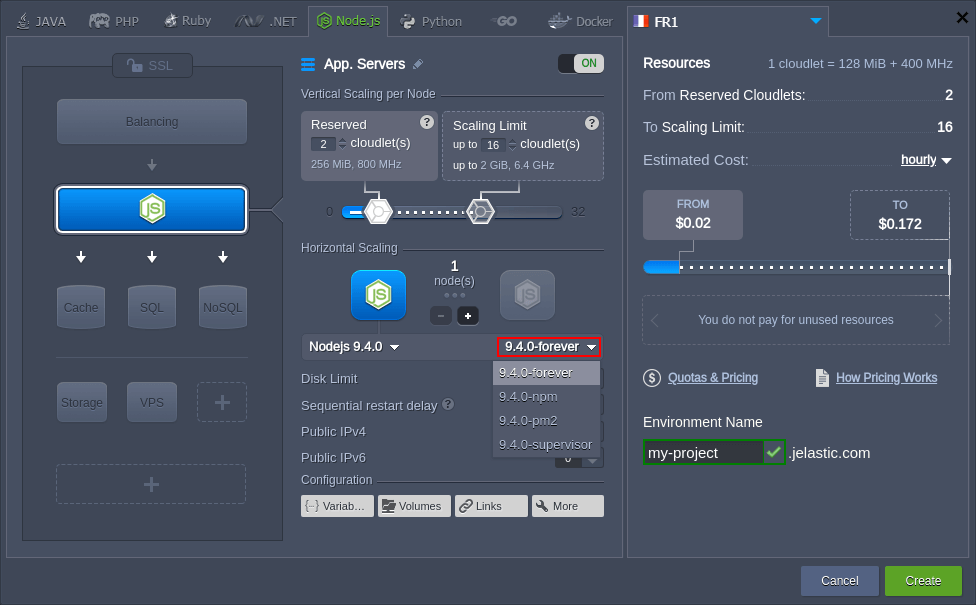Node.js Download For Windows
As an asynchronous event-driven JavaScript runtime, Node is designed to build scalable network applications. In the following “hello world” example, many connections can be handled concurrently. Upon each connection, the callback is fired, but if there is no work to be done, Node For Windows will sleep.
This is in contrast to today’s more common concurrency model where OS threads are employed. Thread-based networking is relatively inefficient and very difficult to use. Furthermore, users of Nodejs are free from worries of dead-locking the process, since there are no locks. Almost no function in the app directly performs I/O, so the process never blocks. Because nothing blocks, scalable systems are very reasonable to develop in Node.
“You cannot dream yourself into a character; you must hammer and forge yourself one.” –Henry David Thoreau

One of the frameworks made just for such purposes is Node.js and, as its name suggests, it relies on JavaScript. More precisely, under the hood it is powered by Google’s own V8 JS engine, the same one that can be found inside the widely known Chrome browser.
Adapted for the creation of network programs, the Node.js environment is suitable for building, for example, web servers. One such tool can be set to communicate with the operating system through several event notification interfaces and respond to new connections, then remain in standby, to have a minimal impact on the system resources at all times.

Node.js is similar in design to and influenced by, systems like Ruby’s Event Machine or Python‘s Twisted. It takes the event model a bit further. It presents an event loop as a runtime construct instead of a library. In other systems, there is always a blocking call to start the event-loop. Typically behavior is defined through callbacks at the beginning of a script and at the end starts a server through a blocking call like EventMachine::run(). In Node js, there is no such start-the-event-loop call. It simply enters the event loop after executing the input script. The tool exits the event loop when there are no more callbacks to perform. This behavior is like browser JavaScript — the event loop is hidden from the user.
HTTP is a first-class citizen in Nodejs, designed with streaming and low latency in mind. This makes Node.js well suited for the foundation of a web library or framework.
Just because Nodejs is designed without threads, doesn’t mean you cannot take advantage of multiple cores in your environment. Child processes can be spawned by using child_process.fork() API, and are designed to be easy to communicate with. Built upon that same interface is the cluster module, which allows you to share sockets between processes to enable load balancing over your cores.
There are many other uses for which Node.js suited and all users interested in the capabilities of this framework have at their disposal a rich documentation for the Application Programming Interface (API).
System Requirements
| Operating System | Windows: Windows 7, 8, 10 Mac: Mac OS X 10.10 and higher version |
Official Video Intro Node.js Platform
Node.js Platform Older Versions
| Version Name | Size | Download |
| node-v14.15.1-x64 | 29.1 MB | Download |
- Perl
- Deno
- ASP.NET
- Elixir
- REBOL
Node.js Platform Overview

Technical Specification
| Software Name | Nodejs Software For Windows V 16.13.0 |
| File Size | 26.7 MB |
| Languages | English, Italian, French, Spanish, Polish, Chinese, German, Japanese |
| License | Opensource |
| Developer | Node.js Foundation |
Conclusion of Node.js Javascript Runtime Software
There are numerous resources and an active community which supports the development of the code and provides interactive lessons and other similar methods of learning how to get along with Node.js Javascript Runtime Software.
ad


Comments are closed.